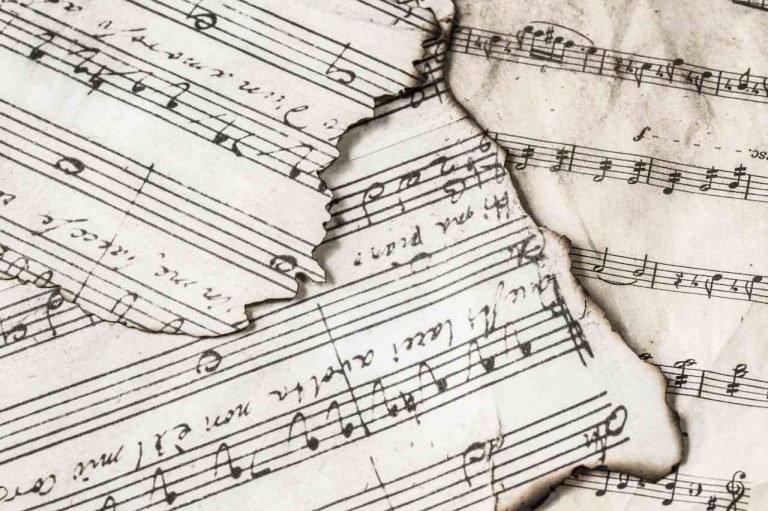As a seasoned IB writer and enthusiast, I’ve seen many students struggle and succeed within the IB Music course. In my opinion, a solid understanding of what awaits can dramatically ease your IB path. The IB Music IA is a critical component of the Higher Level (HL) and Standard Level (SL) courses, designed to uniquely challenge your creativity and analytical skills. According to general IB criteria, this assessment showcases your musical talent and ability to engage with musical theory and practice critically. So, in this article, I will give you some Music IA topics for SL and HL courses.
What Is the IB Music Internal Assessment?
The Internal Assessment (IA) is a core component of the IB Music curriculum that significantly influences your final grade. From my experience, understanding the nuances of the IA is essential for both HL and SL students aiming to excel.
For the Internal Assessment, students must engage deeply with musical pieces through either performance or composition. A detailed investigation into the pieces chosen then complements this task. The main distinction lies in the complexity and depth of the work expected from HL versus SL students. HL students are tasked with engaging in more sophisticated analyses or creating more complex compositions, necessitating a higher understanding and application of musical theory and history.
To give you a clearer picture of what to expect and how to prepare, here are some key elements involved in the IB Music IA:
- Performance/Composition. Students must either perform musical pieces or create original compositions. It allows you to showcase your practical skills and personal musical expression.
- Research and Contextual Analysis. Alongside your performance or composition, you must conduct research that offers a contextual understanding of the music. It includes historical, cultural, and theoretical analysis.
- Critical Reflection. You must critically reflect on your choices and methods, explaining why certain pieces or compositions were selected or created.
- Documentation. Submitting a detailed written report that documents your creative process, research findings, and reflections is crucial. This report is a significant part of your assessment.
For HL students, the requirements are intensified. They demonstrate a deeper level of analysis and a higher degree of complexity in their compositions. It might involve analyzing advanced theoretical concepts within the music or incorporating intricate compositional techniques.
While still expected to engage deeply, SL students work with slightly less complex material, which should be equally well-researched and thought-out but accessible at their level of expertise.
IB Music IA Topics and Research Questions
Below, I’ve provided some Music IA topics along with corresponding research questions. These topics offer both HL and SL students a range of analytical and creative angles.
Additionally, to achieve high scores, I highly recommend reviewing the article on common mistakes in IA writing. It offers crucial insights that can significantly improve your project.

Standard Level (SL) Music IA Topics
SL students should focus on topics that align with their coursework but are less demanding:
- The Role of Music in Traditional Wedding Ceremonies Across Cultures. How does music function within wedding ceremonies in three distinct cultures?
- Evolution of Jazz from the 1920s to the 1950s. How did jazz music evolve in style and instrumentation between the 1920s and 1950s?
- The Evolution of Soundtrack Music in Video Games. How has the music in video games evolved from the early days of simple MIDI files to the complex orchestral scores used in modern games?
- Music and Technology: The Development of Electronic Music in the 21st Century. How has technological advancement influenced electronic music’s development in the last two decades?
- The Influence of African Rhythms on Modern Pop Music. What influence have African rhythms had on the development of modern pop music?
- Comparative Study of Folk Music: Ireland and Scotland. How do the folk music traditions of Ireland and Scotland compare and contrast in terms of musical structure and thematic content?
- The Beatles: Innovations That Changed Music. What were the key musical innovations introduced by The Beatles that had a significant impact on the music industry?
- Reggae as a Social Voice: Bob Marley’s Legacy. How did Bob Marley use reggae music as a platform for social commentary?
- Classical Music’s Influence on Film Scores. How have classical music compositions influenced the development of film scores in Hollywood movies?
- The Cultural Significance of Hip-Hop in Urban America. What role does hip-hop music play in shaping urban cultural identity in the United States?
- Gender Dynamics in Opera: A Study of Female Representation. How are female characters portrayed in operas composed in the 19th century?
- The Rise of K-Pop: A Global Phenomenon. What factors have contributed to the global rise of K-pop in the past decade?
- Music as Therapy: An Investigation into Its Healing Capabilities. How is music used therapeutically to improve mental health and well-being?
- The Revival of Vinyl Records in the Age of Digital Music. What factors have contributed to the resurgence of vinyl records in an era dominated by digital music?
- The Sitar in Indian Classical Music. What is the role of the sitar in Indian classical music?
- Blues Music: Roots and Evolution. How did blues music originate, and what were the key factors in its evolution through the 20th century?
- The Impact of Music Festivals on Local Cultures. What impact do large music festivals have on the cultural and economic aspects of their host locations?
- Latin Jazz: Fusion of Rhythms and Cultures. How does Latin jazz represent a fusion of Latin American musical styles and American jazz elements?
- Music Censorship: A Global Perspective. How is music censorship implemented across different cultures, and how does it impact musicians and audiences?
- Punk Rock as a Cultural Rebellion. What role did punk rock music play in cultural rebellions during the late 20th century?
- The Role of Women in Contemporary Country Music. How have female artists influenced the contemporary country music scene?
- Spirituality and Music in Tibetan Culture. How is music used to express spirituality in Tibetan culture?
- The Rise of Indie Music: From Underground to Mainstream. What factors have contributed to the rise of indie music from underground scenes to mainstream success?
- Music in Advertising: Manipulation or Artistry? How is music used in advertising to influence consumer behavior, and what artistic considerations are involved?
- The Evolution of Musical Theater in the 21st Century. How has musical theater evolved in the 21st century in terms of thematic content and audience engagement?
You need to choose an IA topic that has a manageable scope. It should be broad enough to research in depth but not so vast that it becomes overwhelming. Consider available resources, such as access to specific music scores, scholarly articles, or expert advice.
Buy IB IA with Full Confidentiality!
Grab your IB IA with full privacy guaranteed.
Our no-leak policy keeps your details 100% secure.

Higher Level (HL) Music IA Topics
When you’re an HL student, choosing your IA topic requires thoughtful consideration of the depth required. From my perspective, HL Music IA topics should challenge your understanding of advanced musical concepts:
- Synthesis of Western and Indian Classical Music. How have composers like Ravi Shankar synthesized elements of Western and Indian classical music?
- Music and Revolution: The Role of Songs in Political Movements. How have songs influenced political movements and revolutions across various countries?
- Modern Jazz: The Second Century. How is modern jazz evolving in its second century regarding harmony and form?
- The Evolution of Music Genres in Brazil. How have historical and social developments in Brazil influenced the evolution of its music genres?
- Musical Identity and Post-Colonial States. How do post-colonial states use music to construct a national identity?
- Operatic Performances in Non-Western Countries. How are operatic performances adapted when they are staged in non-Western countries?
- The Psychology of Film Music. How does film music manipulate the psychological response of viewers?
- Electronic Dance Music: Cultural and Economic Impact. What has been electronic dance music’s cultural and economic impact in Europe since the 1980s?
- The Impact of Globalization on Indigenous Music. How has globalization impacted the preservation and evolution of indigenous music traditions?
- Complexity in Contemporary Art Music. How do contemporary composers incorporate complexity and innovation in their compositions?
- Music Education: Its Role and Impact in Different Societies. How does the role and impact of music education differ across various global societies?
- The Intersection of Music and Fashion in Pop Culture. How have music and fashion interacted to influence pop culture over the last fifty years?
- The Development of Chamber Music from Classical to Modern. How has chamber music developed from the Classical period to the modern day?
- The Art of Music Sampling in Hip-Hop and Beyond. What are the artistic and legal complexities of music sampling in hip-hop?
- The Use of Traditional Instruments in Contemporary Music. How are traditional instruments being incorporated into contemporary music genres across the world?
- Cross-Cultural Influences in the Works of Philip Glass. How do Philip Glass’s compositions reflect cross-cultural influences in their structure and themes?
- Sociopolitical Narratives in Rap Music. How do rap artists use their music to comment on sociopolitical issues in contemporary society?
- The Revival of Baroque Music in Modern Performance. What has driven the revival of Baroque music in contemporary performance, and how is authenticity addressed?
- The Integration of AI in Music Composition. How is artificial intelligence (AI) being integrated into the process of music composition, and what implications does this have for the future of music?
- Jazz Music’s Influence on 20th Century Classical Composers. How did jazz music influence the works of 20th-century classical composers?
- The Role of Gamelan in Indonesian Culture and Beyond. How does Gamelan music encapsulate Indonesian cultural values, and how is it being adapted to global music contexts?
- Music as a Reflection of Social Change in the Middle East. How does music reflect social changes in the Middle East over the past 50 years?
- Experimental Music: Pushing the Boundaries of Genre. How do contemporary experimental musicians challenge traditional genre boundaries in their works?
- The Economic Impact of Streaming Services on the Music Industry. What are the economic impacts of music streaming services on artists, record labels, and the music industry?
- Historical Development of Choral Music in Eastern Europe. How has choral music developed historically in Eastern Europe, and what role does it play in cultural identity?
Discuss your ideas with your music teacher. They can provide valuable feedback and suggest angles or resources you hadn’t considered. Additionally, they can help you refine your topic to ensure it meets the IB criteria and offers enough depth for an investigation.
Conclusion
In summary, the success of your IB Music IA depends mainly on your initial understanding of the task, careful selection of your topic, thorough preparation, and meticulous execution. Remember, this is your chance to showcase your musical creativity. If you’re looking for more guidance, don’t hesitate to contact our writers from Buy IB IA Service.

Nick Radlinsky
Nick Radlinsky is a passionate educator, marketer, and management expert with over 15 years of experience in the education sector. After graduating from business school in 2016, Nick embarked on a journey to earn his PhD, fueled by his dedication to making education better for students everywhere. His extensive experience, beginning in 2008, has made him a trusted authority in the field.
Nick's groundbreaking article, published in Routledge's "Entrepreneurship in Central and Eastern Europe: Development through Internationalization," showcases his keen insights and commitment to improving the educational landscape. Guided by his motto, "Make education better," Nick's mission is to simplify students' lives and promote efficiency in learning. His innovative ideas and leadership have helped transform countless educational experiences, setting him apart as a true pioneer in his field.




